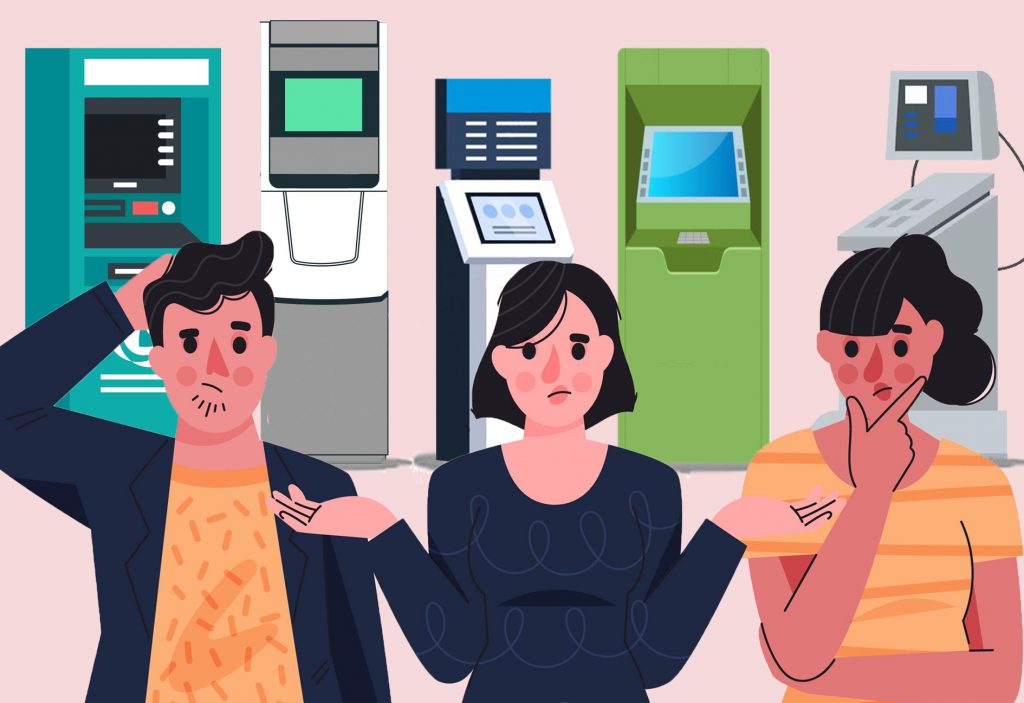Selecting the Right Kiosk Health Solution

Selecting the right health kiosk solution is essential because it has a direct impact on the efficacy and efficiency of point-of-care delivery that occurs on-site. Critical characteristics that satisfy the specified use-case requirements are essential to a high-quality product. Purchasing health kiosks with equipment that isn’t capable of performing the diagnostics you want or going overboard with features might both work against your goals. Facilities might invest in suitable health kiosks that best enhance service delivery with careful planning and upfront assessment. This guarantees that a potent diagnostic instrument will yield the most return. The following eight variables should be taken into account before making a health kiosk investment. An organized assessment of these crucial elements facilitates the efficient acquisition and successful use of the solution
Key Factors to Consider
1. Design
All patients, including the elderly and those with disabilities, should be able to use the health kiosk as it should be designed for universal access. This could increase the health kiosk’s inclusion. Long sessions are less challenging when workstations are adjustable, and seating is comfortable. Strain is avoided by placing the hands and eyes correctly. Weather resistance, corrosion resistance, and toughness are important qualities of the exterior shell. Metal composites and sturdy plastic are good examples of appropriate materials. To keep out dust, moisture, etc., all seams and apertures must be properly sealed. To preserve hygiene, use a surface that is self-disinfecting and antibacterial. To keep the machine from overheating, passive cooling vents are maintained. The diagnostic device’s appropriately built enclosure and secure, tamperproof housing guard against damage and theft. While branding establishes identity, appealing visuals improve the user experience.
2. Features
It should be possible for patients to quickly register by self-checking in at the health kiosk with ID cards, biometrics, and QR codes. The health kiosk must have diagnostic equipment so that it can take values, perform tests, and keep an eye on at least forty-five different bodily factors. The health kiosk’s user interface should be simple to use and provide a guided, step-by-step process to expedite clinical workflow. Health kiosks need to be simple enough for people without technical backgrounds to operate on their own. compatible with data integration and report sharing in hospitals and labs. Health kiosks use a reliable audio-visual connection to enable teleconsultations with physicians. Compliant with e-Sanjeevani and other government portals such as Ayushman Bharat Health Account (ABHA). Work without internet or electricity for 3-4 days to serve in areas that have limited or unreliable availability of electricity and internet. Following the test, the patient should to be able to print the reports right away. Additionally, the medical records and data ought to be digitally stored and readily available when required.
3. Software and Hardware Quality
The hardware has to be constructed with sturdy parts that are meant to be used often. The health kiosk needs to offer teleconsultation and include a high pixel density, high-resolution display. A robust processor that enables quick processing times and effective management of diagnostic data should be installed in the kiosk. Health kiosk software has to be reliable and easy to use. Robust coding standards, robust built-in privacy protections, and data protections like encryption and access control are necessary to provide dependable software quality. To provide insightful information on population health, software should also produce anonymized analytics on aggregated user data; offline operability improves accessibility and usability. When combined, these essential components of high-quality hardware and software provide the perfect health kiosk system for effectively providing fair primary care services.
4. Regulatory Compliance
Health kiosks have to comply with applicable regulatory requirements and compliance processes as they use medical equipment to perform diagnostic testing and exams. Obtaining the required licenses and certifications from regulatory bodies such as the Food and Drug Administration (FDA), “Conformité Européenne” (CE), International Organization for Standardization (ISO), Central Drugs Standard Control Organization (CDSCO), and Health Insurance Portability and Accountability Act (HIPAA) is necessary to accomplish this. By adhering to these regulating organizations, health kiosks are manufactured in accordance with quality standards and environmental protection requirements, preserved to protect patient privacy, and guaranteed to present no hazards to humans, animals, or the environment. Healthcare providers and users may feel confident about the safety, effectiveness, and data security of health kiosk solutions when they comply with regulations.
5. Training and Maintenance
The manufacturer should provide end users with training on how to use the health kiosk’s capabilities. To help the user, a demonstration and instruction manual must be offered. Comprehensive training on all diagnostic tools, handling equipment, troubleshooting, safety procedures, etc., is required for healthcare personnel. Through hands-on training, employees may operate the kiosk on their own. Allow local technicians or specialists to handle the health kiosk’s routine cleaning, calibration of the equipment, and restocking of consumables to guarantee its smooth operation. To set up a faster replacement procedure, manufacturers keep an inventory of spares and replacement parts.
6. Privacy and Security
Gaining consumers’ trust in health kiosks requires proactive security measures and adherence to data protection laws. Encrypt all patient data, including that which is saved on cloud servers and sent via networks. Verify the identity of every user logging into the health kiosk by using multifactor authentication methods such as passwords and biometrics. Without the patient’s consent, never release data externally. To find holes, carry out routine audits and vulnerability assessments.
7. Services and Technical Support
For a flawless patient experience, proactive support with effective monitoring and coordinating response guarantees high system dependability. Give a helpline number for scheduling maintenance, repairs, and inquiries. Customers should be able to contact a dedicated customer care agent by phone, email, chat, or video conference. Maintain a list of frequently asked questions (FAQ) and provide a self-help FAQ section online. Teach customer service representatives how to handle problems and clearly communicate features to users. It is necessary to designate skilled technical personnel to set up health kiosks and provide end-user training.
8. Vendor Reputation
For any vendor of medical products, patient security and confidentiality need to come first. Building trust is facilitated by a track record of upholding high standards of morality, excellence, and legal compliance. Established companies provide safeguards for investments since they are more stable financially and are far less likely to abruptly fail. Reputable suppliers will ensure the dependability of health kiosks by having extensive experience with healthcare technology.
How Clinics On Cloud Health Kiosk is the Right Solution for You?
Clinics On Cloud health kiosks satisfy each of the eight important criteria that should be taken into account before making a purchase. Clinics On Cloud offers its clients high-quality health kiosks. Since 2017, Clinics On Cloud has been at the forefront of offering reasonably priced preventative healthcare services. More than 2,000 health kiosks have been set up in India and five other nations. The Central Drug Standard Control Organization (CDSCO), Food and Drug Administration (FDA), Conformité Européenne (CE), International Organization for Standardization (ISO), and Health Insurance Portability and Accountability Act (HIPAA) are the regulatory bodies with which Clinics On Cloud health kiosk complies. Clinics On Cloud Health Kiosks are made to be universally used, guaranteeing accessibility for all. The health kiosk’s user interface is simple and straightforward, offering step-by-step instructions that even non-technical can easily navigate. A skilled team of software testers and IT professionals at Clinics On Cloud is committed to guaranteeing software quality and safeguarding user information. Additionally, Clinics On Cloud offers top-notch technical and customer support. Twelve hours a day are dedicated to customer care, where they may handle any questions or concerns. Customers who want assistance with installing or operating health kiosks can get help from technical support. With years of experience, Clinics On Cloud has established a solid name in the healthcare sector. More than 50 million patients have utilized Clinics On Cloud health kiosks.
Customers may choose from three variations of Clinics On Cloud health kiosks to get the one that best fits their needs. More than 60 medical parameters may be tracked by our health kiosks. Based on patient outcomes and medical history, the system may make tailored recommendations for diet, lifestyle, and artificial intelligence thanks to machine learning and artificial intelligence. Patients can video chat with the doctor right away thanks to Clinics On Cloud’s telemedicine features. Prescriptions and reports related to medicine are securely stored on cloud servers. Through email, SMS, the patient app, WhatsApp, and instant physical printing via the Health Kiosk, patients may access these records at any time.
Outline
The eight important criteria that need to be considered before purchasing a health kiosk solution are covered in this article. Design, functionality, hardware and software quality, regulatory compliance, maintenance and training, privacy and security, support services, and vendor reputation are among the determining considerations. via meeting these requirements, point-of-care services may be efficiently provided via Clinics On Cloud health kiosks.
